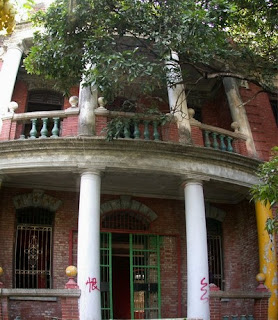 |
| Another great reformer |
I realize it's been some time since my last post. A professional workshop and other matters have been eating into my time.
Hong Kong has a love affair with tests. Tests in the terrirtory are looked upon as standardized and necessary, though this is hardly the truth. Hong Kong idolizes students who perform well on its HKCEE, an exit exam Form 5 students take in secondary school. Students who receive A grades in all subjects on the exam are paraded in front of cameras and looked upon as representing the ideal student. But the attention and adulation these students receive from the media and interested schools masks a problem with Hong Kong's education system few understand and fewer are slow to change.
Students who can't afford attending an overseas university after secondary school must rely on their HKCEE results to get them into a local university. However, competition is extremely fierce for a spot at one of Hong Kong's local universities. Their HKCEE results are the sole determiner of whether students are given the chance to experience higher education.
The main problem, as any educationalist in Hong Kong knows, is the rote learning that takes place in public classrooms. From the time a student enters primary one, they are indoctrinated into the system through rote learning, mainly by memorization of facts, and, it is assumed, these facts will be on the HKCEE. High parent expectations and very large class sizes (as many as 40 students in a single class) further exacerbate the problem.
Hong Kong public schools have been in need of urgent reform for some time. But tackling parents' perceptions and attitudes via public debate about what really constitutes learning must come first before launching any major changes.





